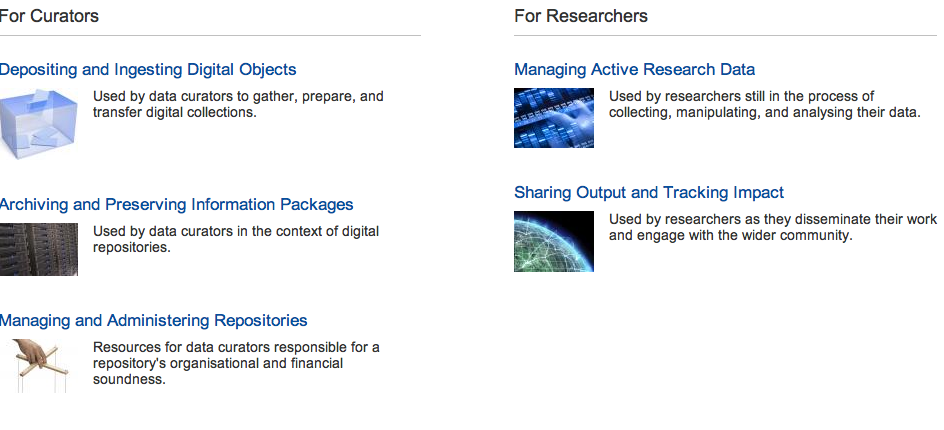DPC Technology Watch Reports
Posted by Marieke Guy on 15th May 2012
The Digital Preservation Coalition and Charles Beagrie Limited have announced the continuation of their collaboration, producing 3 more Technology Watch Reports.
‘Five new Technology Watch Reports have already been produced – or are in production – and have been enthusiastically received’, said William Kilbride of the DPC. ‘The next three will ensure that the production process continues through 2013 with themes and topics proposed and refined by DPC members to help them with digital preservation.’
The three new reports will be:
- Web Archiving, Maureen Pennock
- Preserving Computer Aided Design, Alex Ball (jointly with DCC)
- Preservation Metadata, Brian Lavoie and Richard Gartner
Two of the reports are completely new, and a third one updates one of the more popular reports that has become dated since it was first published in 2005.
The DPC Technology Watch Report series was established in 2002 and has been one of the Coalition’s most enduring contributions to the wider digital preservation community. They exist to provide authoritative support and foresight to those engaged with digital preservation or having to tackle digital preservation problems for the first time. These publications support members work forces’, they identify disseminate and discuss best practices and they lower the barriers to participation in digital preservation.
‘Each ‘Technology Watch Report’ analyses a particular topic in digital preservation, evaluating workable solutions, and investigating new tools and techniques appropriate for different contexts,’ explained Neil Beagrie, series editor. ‘The reports are written by leaders-in-the-field and are peer-reviewed prior to publication. The intended audience is worldwide, especially in the UK, Europe, Australia New Zealand, USA, Canada.’
‘We expect that these reports will have a wide readership. The audience includes members and non-members of the coalition; staff of commercial and public agencies; repository managers, librarians and archivists charged with managing electronic resources; senior staff and executives of intellectual property organizations in the private and public sectors; those who teach and train information scientists; as well as policy advisors requiring an advanced introduction to specific issues and researchers developing DP solutions.’
Further publicity on each report in the series will be released over the course of the next year and DPC members will be engaged in the process throughout: draft outlines of each reports will be distributed to members for comment, members will be given access to previews before reports are released; and the whole process will be overseen by an editorial board drawn from the DPC.
Posted in Archiving, trainingmaterials | Comments Off
